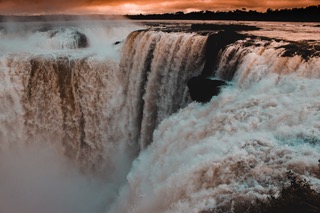
Ethiopian and Egyptian Nile River Crisis: The Need for the Application of the non-Zero-Sum Principle
The Nile river crisis between Ethiopia and Egypt has emerged from the countries conflicting foreign policy trust. Foreign policy primarily follows national interest to protect the originating nation in the international arena. It is one of the finest tools at a country’s disposal to pursue its own interest. A very good foreign policy would glaringly lead a country in fulfilling its national interest and acquiring its rightful place in the comity of nations. Foreign policy can be pursued peacefully by dialogue or forcefully by annexation and wars.
Peaceful pursuit of foreign policy in the form ‘dyad’, ‘triad’, ‘trading bloc’, ‘commercial zone’ and ‘open regionalization’ has been used to describe a new pattern of international interactions. (Belous and Heartly, 1990). Territorial expansion can be achieved through peaceful form. For instance, in 1803, the United States (U.S.) bought a massive chunk of North America, pegged at about 827,000 square miles. The acquisition nearly doubled the national domain for a mere $15 million (Lee, 2017, p. 1). Forceful pursuit of foreign policy exists in the form of colonialism (Africa and Latin America), wars (e.g. World Wars, Franco-Prussia War, Cold War) and, recently, the promotion of terrorism by states, e.g.in Iran (Hezbollah, Houthis).
Accordingly, nations whose foreign policies are in the form of ‘dyad’, ‘commercial zone’ and ‘open regionalization’ have had smooth relations with other countries. This is because their foreign policy trust did not take cognizance of the ‘two-person zero-sum’ game principle of international relations: a situation where player A and B have opposing interests. As the two players have opposing interests, they are completely antagonistic and the sum of their game cancels each other (Efanodor, 2017). In a two-person zero-sum game, the win of one actor is the loss of the other; i.e. if A wins 10, B loses 10; and the sum is zero. As it stands, Ethiopia and Egypt are involved in the ‘zero-sum’ principle of international relations. Each nation wants to benefit maximally without considering the interest of the other country.
The crisis between Ethiopia and Egypt is a result of a clash of national interests. Ethiopia is currently building a $4 billion dam on the Blue Nile, claiming the project is necessary to provide the country with much-needed electricity. The grand Ethiopian renaissance dam GERD installed power generation capacity is 6.450 Megawatts (MW). Egypt, on the other side, fears that the dam could stem the flow of the Nile, on which around 90 percent of its water supply depend (Mohammed, 2019, p. 1).
Ethiopia, having the lion’s share of the Nile waters with its three tributaries, the Blue Nile, Sobat, and Atbara, carries about 84 percent of the total runoff from the Nile. With a growing but otherwise resource-poor economy, the country is keen to develop its vast potential for hydroelectricity generation in the Nile basin to become a regional hub of electric power exports. GERD, a $5 billion project to become the largest hydroelectric dam in Africa, is part of that ambition. The dam is located on Ethiopia’s flank of the Blue Nile, just twelve miles from its border with Sudan. It will have paramount economic value to Ethiopia, doubling the country’s electricity generation capacity and earning as much as $1 billion annually from energy exports to Sudan, South Sudan, Djibouti, Kenya and Egypt. The GERD’s massive reservoir will store 74 billion cubic meters (BCM) of water, roughly equal to a year and a half’s worth of the Blue Nile’s flow, which will be gradually filled upon the dam’s completion (Lashitew, 2020, p. 1).
Concerning the Nile, no proper framework agreement exists. According to a treaty arranged by the British in 1929, the Nile’s largesse is shared between just two nations: Egypt possesses 75 percent and Sudan the remaining 25 percent. This division is untenable. The dam is located just 15 miles from the Ethiopian border with Sudan, a fact that originally objected to Ethiopia’s plans. Since then, Sudan has been persuaded that the dam could help regulate the flow of the river prone to damaging floods. That leaves Egypt isolated. According to the National Independent Scientific Research Group (NISRG), an expert panel commissioned in 2015 by Ethiopia, Egypt and Sudan to assess the environmental impact of the proposed Dam, the stand-off, Ethiopia and Egypt “could blunder into a crisis if they do not strike a bargain” soon (Pilling, 2019, p. 1).
After a long time of political frictions, Ethiopia and Egypt plus Sudan came to reach an agreement on the principles of utilization of the Nile on the 23rd of March 2015 (Bayeh, 2016). This agreement stipulated an ‘equitable and reasonable’ utilization of the Nile which will not cause ‘significant harm’ to other riparian countries. Despite years of negotiations, however, the two countries have made little progress in specifying the technical details on the filling and operating of the dam to date (Lashitew, 2020, p. 1).
In October 2019, Ethiopia’s Nobel Peace Prize-winning Prime Minister Abiy Ahmed said “no force can stop Ethiopia” from building the dam (Mohammed, 2019, p. 1). Egypt responded by saying the country was ‘shocked’ by the remarks, amid calls in local media for launching a war to stop Addis Ababa from building the dam. Shortly afterward, Abiy Ahmad and Egypt’s President Abdel-Fattah al-Sisi held talks on the controversial dam project on the sidelines of a Russia-Africa summit in October 2019 in the Black Sea resort of Sochi. In November 2019, the foreign ministers of Egypt, Ethiopia and Sudan held a new round of talks in Washington following an invitation from the U.S. to solve the dispute (Mohammed, 2019, p. 1).
The negotiations were coordinated by the Treasury Department, sidelining the U.S. State Department, which possesses the appropriate expertise for such form of engagement. The Treasury Department alongside the World Bank, has committed significant resources to aid Ethiopia’s reform efforts under Prime Minister Abiy Ahmed. The intention behind the involvement of the Treasury Department and the World Bank, therefore, seems to be stepping up pressure on Ethiopia by signaling the financial costs of recalcitrance. Consequently, Ethiopia withdrew from the negotiation in February 2020 citing “pressures” to sign a deal and “unfinished consultations back home” (Lashitew, 2020, p. 1).
The country’s Foreign Ministry expressed its disapproval of the draft agreement, characterizing it as improper and highly biased, while Egypt had noted that it signed the agreement at a meeting without Ethiopia being present. Instead of helping to resolve these differences, the U.S. warned Ethiopia that “final testing and filling of the GERD should not take place without an agreement” (Lashitew, 2020, p. 1). In March 2020, Ethiopia threatened Egypt by stating that it will start filling the dam in July when the rain starts, but Egypt has protested the move in a letter to the United Nations UN Security Council on the 1st of May this year. Ethiopia also sent a letter to the UN body explaining its position (Meseret, 2020, p. 1).
But, on the 21st of May, Ethiopia’s Foreign Minister mentioned that his country was ready to return to talks after talking with the Foreign Ministers of Egypt and Sudan. According to him, they “have agreed to continue with technical-level engagements through our water ministers tasked to discuss outstanding issues and arrive at win-win solutions” (Meseret, 2020, p. 1). Egypt’s foreign ministry countered as follows:
“The return of the three parties to the negotiation table was agreed to complete the remaining simple part of the agreement on the filling and operation of the Grand Ethiopian Renaissance Dam, preserves Egypt’s water interests and equally takes into account the interests of both Ethiopia and Sudan” (Trtworld, 2020).
From the above, it is obvious that Egypt requires the river so as Ethiopia needs it which is the cause of an ongoing conflict. For a peaceful co-existence and cooperation to be restored, both nations need to butch their current stand on the ‘zero-sum game’ and embrace the opportunity of a ‘non-zero-sum game’. Both nations will have to give and take.
References
- Belios, R.S. and Heartly, R.S. (Eds.) (1990). The Growth of Regional Trading bloc in Global Economy. Washington, D.C., National Planning Association.
- Efanodor, H.O. (2017). Theories of International Relations. Retrieved on 13/01/2020 from: https://www.edouniversity.edu.ng/oer/lecturenotes/theories_of_international_relations.
- Meseret, E. (2020). Ethiopia, Egypt, Sudan will resume talks on disputed Dam. Retrieved on 01/202020 from: https://Apnews.Com/117f95b31f8785a85f60ab3b7521876f.
- Pilling, D. (2019). How to avert a war over the Nile between Egypt and Ethiopia: Addis has in the past rejected mediation, but the US has recently become involved. Retrieved on 01/02/2010 from: https://www.ft.com/content/ce3390ea-3778-11ea-a6d3-9a26f8c3cba4.
- Lashitew, A. (2020). The United States must not pick sides in the Nile River Dispute. Retrieved on 12/01/2020 from: https://foreignpolicy.com/2020/03/14/ethiopia-egypt-gerd-united-states-must-not-pick-sides-in-the-nile-river-dispute/.
- Lee, R. (2017).The True Cost of the Louisiana Purchase. Slate. Retrieved on 10/10/2019 from:slate.com/articles/news_and_politics/history/2017/03/how_much_did_the_louisiana_purchase_actually_cost.html.
- Mohammed, A. (2019). Nile dam spurs fears of Egypt-Ethiopia “water war.” Retrieved on 01/02/2010 from:https://www.aa.com.tr/en/africa/nile-dam-spurs-fears-of-egypt-ethiopia-water-war/1630981.
- Trtworld (2020). Ethiopia, Egypt, Sudan to resume talks on disputed dam. Retrieved on 01/12/2019 from:https://www.trtworld.com/africa/ethiopia-egypt-sudan-to-resume-talks-on-disputed-dam-36534.

